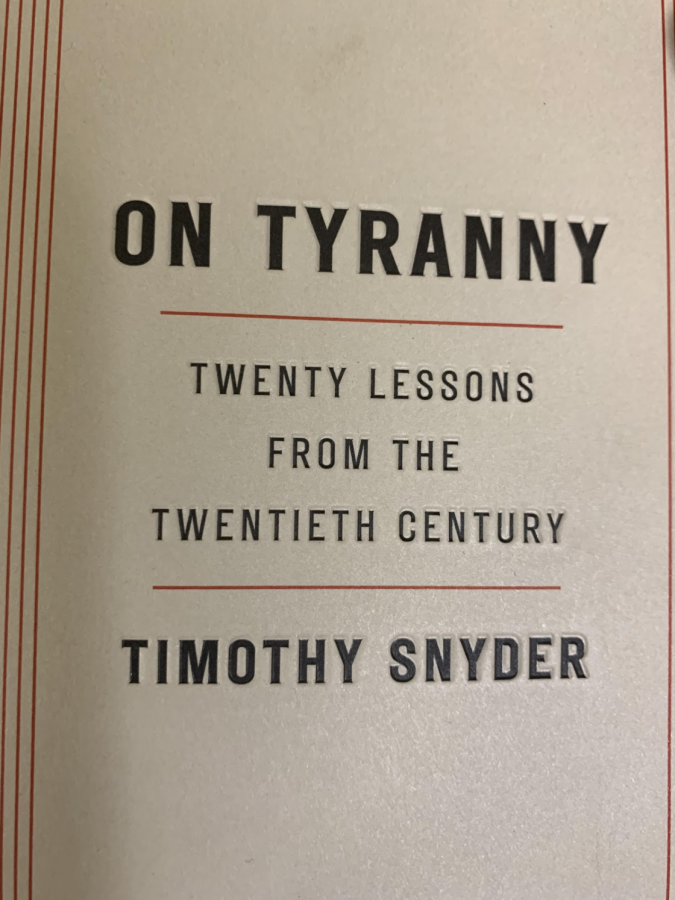

Similarly, 1945 marked the end of World War II and the liberation of several Nazi-occupied nations, many of which soon fell from democracy into authoritarianism. Various new nations were born (like Finland and the Baltic states) and several others became democracies (like the United Kingdom and Germany). The years around 1918 were significant because 1918 marked the end of World War I, when the Russian, Austro-Hungarian, Ottoman, and German empires fragmented. Snyder cites three crucial moments in the formation of 20th-century European democracies: 1918, 1945, and 1989.


Namely, he worries about the unprecedented election of Donald Trump, a businessman and television star with an authoritarian populist style and no previous political experience, as the president of the United States in 2016. In On Tyranny, Snyder covers a wide swath of 20th-century European history in order to help make sense of 21st-century America. His wife, Marci Shore, is also a Yale professor specializing in European history. Although he has held several fellowships in Europe and the United States, he has been a history professor at Yale University since 2001, where he researches and teaches on the political history of 20th-century Eastern Europe (especially Ukraine and Poland), and he also holds a permanent fellowship at the Institute for Human Sciences, in Vienna, Austria. Beyond these languages and the several other Eastern European languages that Snyder can read, his books have been translated into dozens more. In addition to his academic work, popular bestsellers, and YouTube lecture series “Timothy Snyder Speaks,” Snyder also writes frequently for the New York Review of Books and has lectured and fielded interviews in French, German, Polish, Ukrainian, and English about his recent work. He has played an important part in leading a number of prominent American scholarly and historical organizations, including the Association for Slavic, East European, and Eurasian Studies and the United States Holocaust Memorial Museum. Snyder has won dozens of scholarly awards, including the literature award of the American Academy of Arts and Letters and the Hannah Arendt Award for Political Thought. Snyder’s research ranges from intensive biographies to broader histories of 20th-century Europe (like Bloodlands: Eastern Europe Between Hitler and Stalin, which brought him to international prominence), and popular bestsellers about the present-day. He studied political science and European history at Brown University, then completed his PhD as a Marshall Scholar at the University of Oxford. Timothy Snyder was born and raised near Dayton, Ohio.


 0 kommentar(er)
0 kommentar(er)
